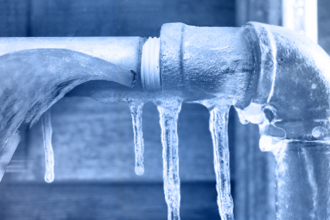Power outages are an inevitable reality that can disrupt our daily lives, especially during emergencies. In the United States, where extreme weather events like hurricanes, snowstorms, and wildfires are common, having a reliable home backup generator is essential. These devices ensure an uninterrupted power supply, keeping essential appliances running and keeping you connected and safe during challenging times.
Selecting the right backup generator is a critical decision that can significantly impact the well-being of your household. For instance, it guarantees uninterrupted power during emergencies, preserves perishable goods, supports medical needs, maintains climate control, ensures communication access, supports security systems, and provides overall peace of mind. In this thorough guide, let’s look into every aspect of home backup generators.
Why Do You Need a Reliable Battery Generator for Home?
The primary function of a home backup generator is to provide power during outages. Power disruptions can happen at any time, whether caused by severe weather, grid failures, or unforeseen circumstances. For example, think about a family in the Midwest facing a sudden snowstorm. Without power, the heating system can fail, putting the family at risk of extreme cold. A reliable battery generator provides power instantly to keep essential appliances running and lights on so you can be comfortable and safe during critical moments.
Battery generators are known for their versatility and portability. Unlike traditional fuel-powered generators, battery generators are often compact, making them easy to move and position where needed. The flexibility of back up power for home is invaluable, especially in emergencies where specific areas of your home may require power more urgently than others. For instance, a backup generator becomes a valuable asset in coastal regions susceptible to hurricanes, such as the Gulf Coast. When a hurricane strikes, the electrical grid often takes a severe hit. A well-chosen home backup generator can help families by powering essential devices, preserving food supplies, and maintaining a communication lifeline.
Another notable feature of a home backup generator is its silent operation. In contrast to the noise produced by traditional generators, battery-powered options operate quietly. This is not only more pleasant for you and your neighbors but can be crucial in scenarios where noise discipline is necessary, such as during nighttime power outages.
Common Types of Backup Power for Home
When choosing a backup generator for your home, you will find many different types suitable for different applications. Let’s look into the specifics of some standard backup power options:
- Battery-Based Generators
Battery-based generators operate by storing electrical energy in rechargeable batteries. When the power goes out, these batteries kick in to provide a seamless backup power supply.
- Benefits: They are silent during operation, emit no fumes, and are environmentally friendly. Suitable for powering essential devices, they are particularly effective for short-duration outages.
- Drawbacks: Limited power output is a notable drawback. While they are efficient for smaller electrical loads, they might not support the entire household for extended periods.
- Propane Generators
This type of home backup generator utilizes propane gas to produce electricity. They are equipped with a specialized internal combustion engine that converts the energy from burning propane into electrical power.
- Benefits: Propane generators offer a reliable and efficient power source. They boast a longer runtime than some alternatives with lower emissions levels than diesel generators.
- Drawbacks: Regular fuel supply maintenance is necessary, and they might not be as fuel-efficient as other options. The availability of propane in your area is another significant factor to consider while purchasing a propane generator.
- Diesel Generators
Diesel generators are powered by diesel fuel. They use a special internal combustion engine to convert the energy from burning diesel into electrical power.
- Benefits: Diesel generators are known for their robustness and high-power output. They are fuel-efficient and well-suited for larger homes or commercial applications.
- Drawbacks: These generators can be noisy during operation, requiring additional measures for noise control. Regular maintenance is essential for optimal performance. Also, they are not environmentally friendly and emit fairly high levels of carbon monoxide, nitrogen oxides, sulfur, and particulate matter.
- Gasoline Generators
Gasoline generators use an internal combustion engine fueled by gasoline to produce electrical power. They are one of the most common types of generators.
- Benefits: These generators are readily available and cost-effective. They are versatile and can power various appliances and devices.
- Drawbacks: They may not be as fuel-efficient as propane or diesel generators. Gasoline has a limited shelf life, and its availability during emergencies might be a concern.
- Solar Generators
Solar generators make use of energy from the sun through photovoltaic cells to generate electricity. They store this energy in batteries for use during power outages or when needed.
- Benefits: Solar generators are environmentally friendly, with no fuel costs. A battery generator for home is suitable for intermittent use or to supplement other generator types. In regions with ample sunlight, they can be a fantastic sustainable choice.
- Drawbacks: Efficiency is dependent on sunlight availability. During extended cloudy periods and at night, the power output diminishes. But a robust home backup generator can store the energy for use later.
To summarize, each home backup power supply type has its advantages and disadvantages. However, considering factors such as power supply time, environmental friendliness, and cost, a solar generator may be a wise choice. It is a clean energy solution that can provide a reliable electricity supply to the home and has low maintenance costs.
Indicators to Help Choose the Right Home Backup Generator
Selecting the right home backup generator is a vital decision that requires a comprehensive understanding of your needs and the technical aspects of different models. To make an informed choice, consider the following key indicators to guide you to a generator that aligns with your requirements.
- Reliability
The reliability of a home backup generator is its ability to consistently perform well under various conditions. Look for generators with a proven track record of reliability backed by positive user reviews and testimonials. Opt for models equipped with automatic transfer switches, enabling the generator to kick in seamlessly when the main power fails. Reliability ensures uninterrupted power, especially when you need it the most.
- Power Output
Power output is measured in watts and determines the amount of electrical load a generator can handle. Assess your power needs by considering the essential appliances and devices you want to run during an outage. Choose a generator with enough power output that matches your needs. Larger homes with multiple appliances may necessitate generators with higher wattage capacities. Ensuring the generator can handle your specific load is crucial for a seamless power supply.
- Ease of Maintenance
Maintenance is essential for the consistent performance and longevity of a generator. Consider models with user-friendly designs, easily accessible components, and clear maintenance instructions. Regular maintenance tasks, such as checking oil levels or changing filters, should be straightforward. Some home backup generators come equipped with self-diagnostic systems, simplifying troubleshooting and reducing the overall maintenance effort.
- Longevity
The longevity of a generator is influenced by factors such as materials used, product quality, and the manufacturer’s reputation. Assess warranty coverage and the availability of replacement parts. Investing in a home backup generator with a durable build from a reputable brand is the right way to go, as a generator is an investment, and durability is essential for long-term reliability.
- Fuel Type
Generators can run on various fuel types, including gasoline, propane, diesel, and solar energy. Each fuel type has its own set of advantages and drawbacks. Gasoline generators are common and readily available, while propane and diesel generators offer longer runtimes. Solar generators are sustainable but depend on sunlight availability.
- Noise Level
Noise level is measured in decibels (dB). Depending on the model, a home backup generator can range from quiet to noisy during operation. Consider the generator’s noise level, especially if you live in a noise-sensitive area or require a nighttime operation. Look for backup generators specifically designed for quiet operation if noise is a concern.
- Transfer Switch Requirement
During an outage, a transfer switch automatically switches the power supply from the main grid to the generator. Generators with automatic transfer switches provide a seamless transition during power outages. Consider whether the home backup generator requires an additional transfer switch and factor this into your overall budget and installation plan.
- Size and Portability
Generators come in various sizes, from compact and portable to larger, stationary models. Consider the physical shape, dimensions, and weight of the generator. Portable generators are easy to move, but larger homes may require stationary models with higher power outputs.
- Environmental Impact
For those environmentally conscious, generators with lower emissions or renewable energy sources are better. Propane and solar generators, for example, are known for their lower environmental influence compared to traditional fuel-powered options.
Invest a Backup Power for Home: Top Picks
Looking for a robust home backup generator? Here are some of the top picks for you:
- Jackery Explorer 2000 Plus Portable Power Station
The Jackery Explorer 2000 Plus Portable Power Station is the ultimate choice for reliable backup power. With an impressive capacity ranging from 2 kWh to an expansive 24 kWh, this portable generator meets diverse energy needs. Moreover, it is expandable and can power heavy-duty devices up to 6000W, ensuring adaptability to varying power requirements.
With 6 SolarSaga 200W solar panels, it achieves a full charge in just 2 hours, harnessing solar energy for sustainable power. You can bid farewell to conventional energy sources with Jackery Explorer 2000 Plus Portable Power Station for a future of efficient and eco-friendly power.
- Jackery Explorer 3000 Pro Portable Power Station
The Jackery Explorer 3000 Pro Portable Power Station is a powerhouse that provides substantial capacity to sustain a cottage for an entire weekend. It can power 99% of appliances for a long time and supports APP control, which makes it an ideal power supply for home emergencies, camping, RVs, and glamping.
Its all-season battery operates seamlessly in temperatures as low as -20 degrees Celsius. It is equipped with cutting-edge lithium battery technology and incorporates multiple safety features, including enhanced battery protection and temperature core detectors. Elevating safety standards, the Jackery Explorer 3000 Pro Portable Power Station ensures a reliable and secure charging experience, making it an ideal choice for your backup power needs.
Maintenance Tips to Extend the Lifespan of Your Backup Generator
Here are essential tips to keep your battery backup system in optimal condition, ready to provide uninterrupted power when needed.
- Regular Inspections
Perform routine visual checks on your generator to identify any signs of wear, loose connections, or leaks. Inspect fuel lines, hoses, and electrical components. Addressing issues can prevent more significant problems down the line.
- Battery Maintenance
The battery is a critical component of your generator. Regularly check the battery terminals for corrosion and clean them if needed. Ensure the battery is adequately charged, especially in standby generators, to guarantee a swift start during power outages.
- Cooling System Maintenance
Overheating can impact a generator’s performance. Inspect the cooling system, including radiators and fans, to ensure proper airflow. Clean debris or dirt accumulation, and if your generator uses a liquid cooling system, check coolant levels and top up if necessary.
- Keep it Clean
A clean generator is a happy generator. Regularly remove debris, dirt, and dust from the generator’s exterior. Clean the air filters and replace them as recommended by the manufacturer. Cleanliness not only ensures optimal performance but also prevents components from overheating and wearing down rapidly.
- Exercise the Generator
Generators should be exercised regularly. Running the generator periodically, even briefly, helps lubricate internal components, prevents fuel system issues, and ensures it is ready for extended operation during emergencies.
- Store Properly in Off-Season
Proper storage is a must if your generator is not used year-round. Follow the manufacturer’s guidelines for storing the home backup generator in the off-season. This may include avoiding exposure, dry placement, and shock protection.
- Document Maintenance Activities
Maintain a comprehensive and clear record of all maintenance activities. Documenting inspections, repairs, and routine maintenance provides a clear history of the generator’s health. It helps identify patterns, predict potential issues, and ensure that you adhere to recommended service intervals.
Conclusion
Investing in a home backup generator is crucial for uninterrupted energy access during outages. If you want reliable and sustainable power, Jackery’s innovative power storage solutions are highly recommended. The Jackery Explorer 2000 Plus Portable Power Station and Jackery Explorer 3000 Pro Portable Power Station stand out as top picks, offering impressive capacities, solar charging capabilities, and advanced safety features. The brand distinguishes itself through compact design, expandable capacity, rapid solar charging, and cutting-edge safety features. Moreover, Jackery’s portable power stations are convenient, making them ideal for diverse energy needs.














